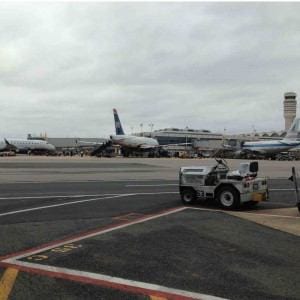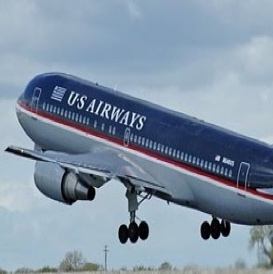The Travel Detective
What We’re All Giving Up with the US Air/American Airlines Merger
 When the U.S. Justice Department sued to block the merger of American and US Airways, I went on CBS News and said I would bet heavily that the case never went to trial. That it was an attempt by the Department of Justice to dictate the terms of the merger, and not really block it.
When the U.S. Justice Department sued to block the merger of American and US Airways, I went on CBS News and said I would bet heavily that the case never went to trial. That it was an attempt by the Department of Justice to dictate the terms of the merger, and not really block it.
Turns out I’m right.
At the end of the day, it’s all about horsetrading slots at key airports, because the DOJ was worried that the newly merged American would have unchallenged dominance at airports like Washington Reagan, controlling nearly 70 percent of all flights. It now appeared that the DOJ was in quiet talks with the airlines to do that major horsetrading.
And today it was announced that the DOJ has filed court papers with a settlement in its lawsuit against the merger. American Airlines and US Air will merge.
Is that good news for consumers? First, a little walk through history. Whenever two banks merge, they almost always announce it will be business as usual and even better service. But within a short time, it’s been almost inevitable that the newly merged bank lays off employees, closes branches and your relationship with that bank reverts to an ATM.
 The same has been true for airlines (Don’t believe me? Check out this timeline of merger history). A merger is announced, and the press release states that as a result of the merger, the newly formed company is the largest airline in the world… for the moment. Then the company starts dropping employees, routes, airports and service. Let us not forget that when American filed bankruptcy, part of its reorganization plan involved laying off about 13,000 employees.
The same has been true for airlines (Don’t believe me? Check out this timeline of merger history). A merger is announced, and the press release states that as a result of the merger, the newly formed company is the largest airline in the world… for the moment. Then the company starts dropping employees, routes, airports and service. Let us not forget that when American filed bankruptcy, part of its reorganization plan involved laying off about 13,000 employees.
Then US Airways showed up, met with the unions and said its plan for a merger would only involve laying off about 6,200 people. So the unions had a choice — did they want to be shot or stabbed? It was an easy, but still painful choice – they sided with US Air.
The deal was announced. Then came the surprise suit by Justice, which was very quiet when other mergers were announced — and completed — notably Northwest and Delta and United and Continental. But on this deal, the department was quite vocal. It even got the attorneys general of six U.S. states and the District of Columbia to join in the suit. But since then, the battle lines have been, let’s just say — readjusted as the lobbyists have been out in full force. The Texas attorney general withdrew his support for the lawsuit before it was settled.
Seven big city mayors also banded together to urge Attorney General Eric Holder to drop the suit. Not surprisingly, the mayors all represent cities that are hubs for American or US Airways — Chicago, Dallas, Fort Worth, Miami, Charlotte and Phoenix. The airlines even got 26 chambers of commerce to say they are supporting the merger.
![]() All I can say is I hope that the mayors and chambers extracted agreements — in writing — that their cities would not lose service as a result of the merger. Actually, all the mayors had to do is consult with the mayors of St. Louis, Cincinnati, and most recently, Memphis, to get a different perspective of what happens when airlines either merge or are absorbed by other carriers. Service has been drastically reduced, some might say decimated — in those cities. In fact, mid-sized U.S. cities have lost 25 percent of their available airline seats in the past two years. That’s a fact. So why are the mayors so openly supportive of this merger? Beats me.
All I can say is I hope that the mayors and chambers extracted agreements — in writing — that their cities would not lose service as a result of the merger. Actually, all the mayors had to do is consult with the mayors of St. Louis, Cincinnati, and most recently, Memphis, to get a different perspective of what happens when airlines either merge or are absorbed by other carriers. Service has been drastically reduced, some might say decimated — in those cities. In fact, mid-sized U.S. cities have lost 25 percent of their available airline seats in the past two years. That’s a fact. So why are the mayors so openly supportive of this merger? Beats me.
So, it looks like American and US Airways will almost surely give up slots at Washington Reagan and a few other slots in selected cities. Even with those slot trades, I still would have liked to see the guarantees that service levels and frequencies will be maintained in the very cities that are now so strongly in favor of the merger.
By Peter Greenberg, originally published for LinkedIn












